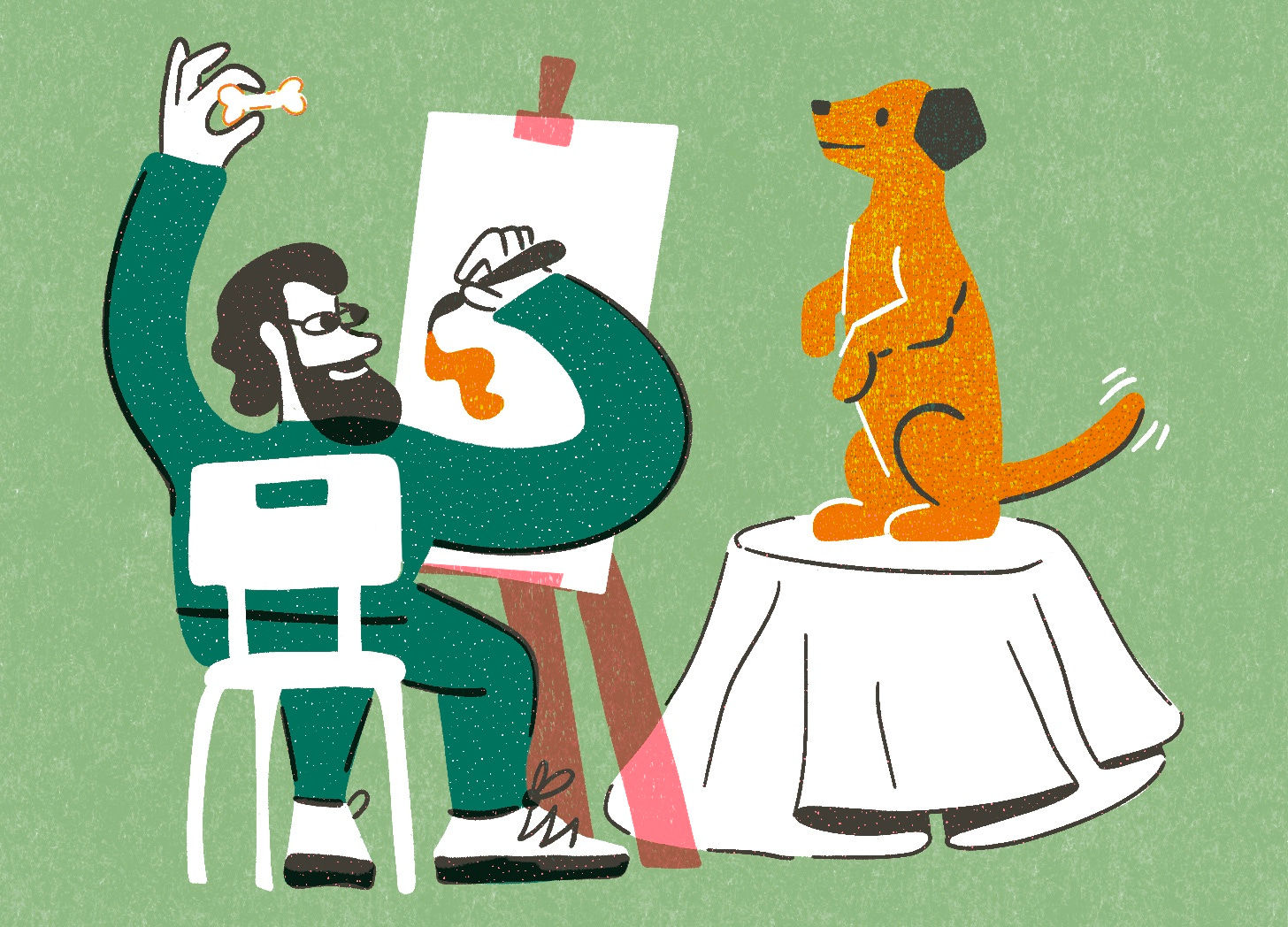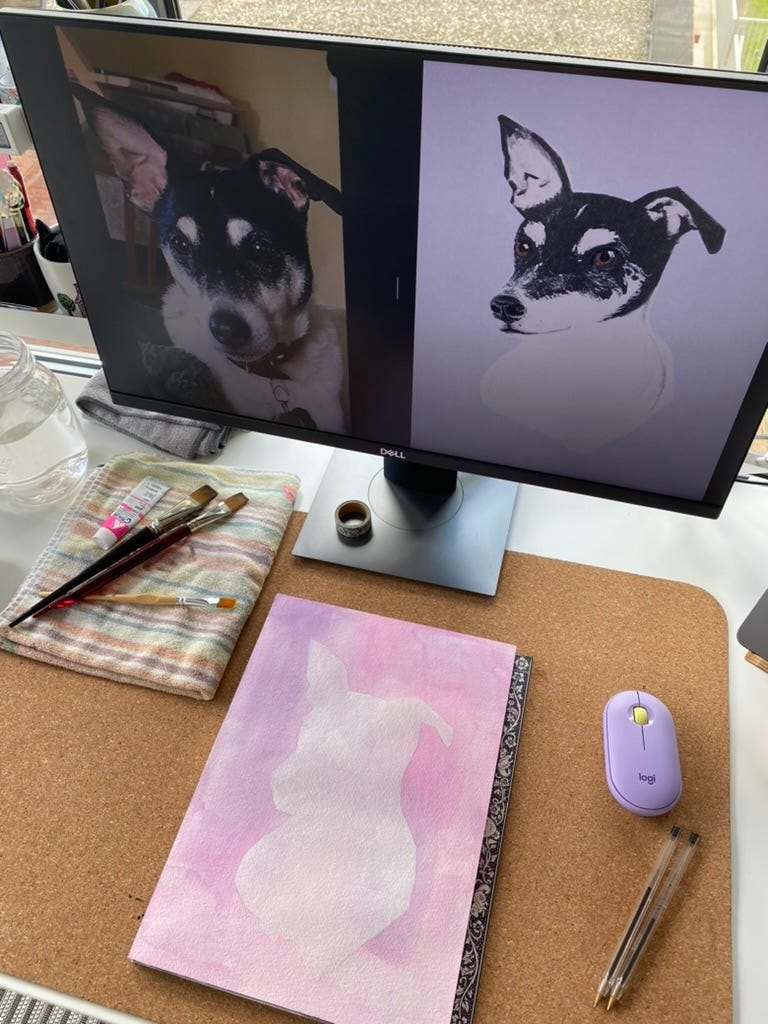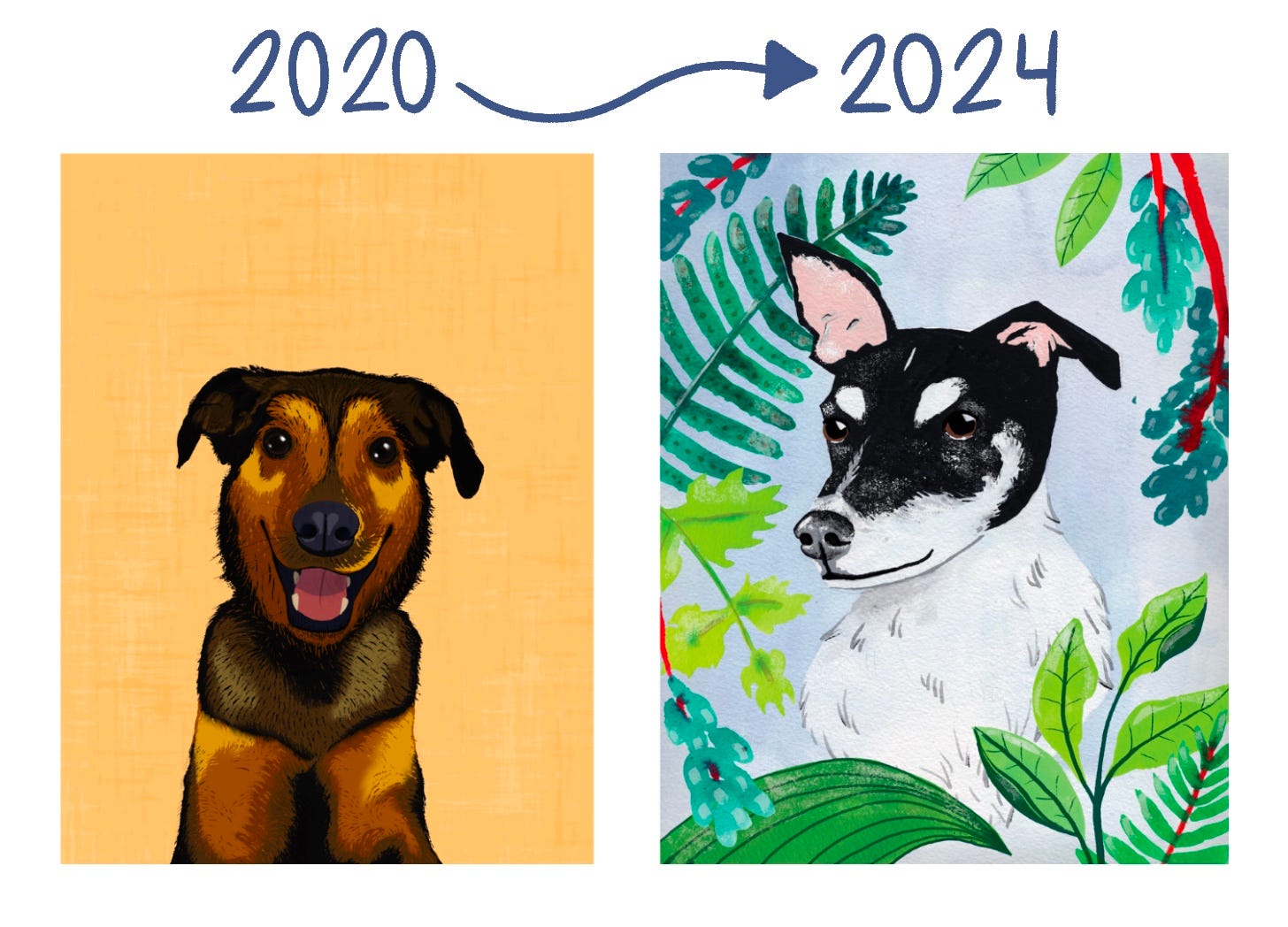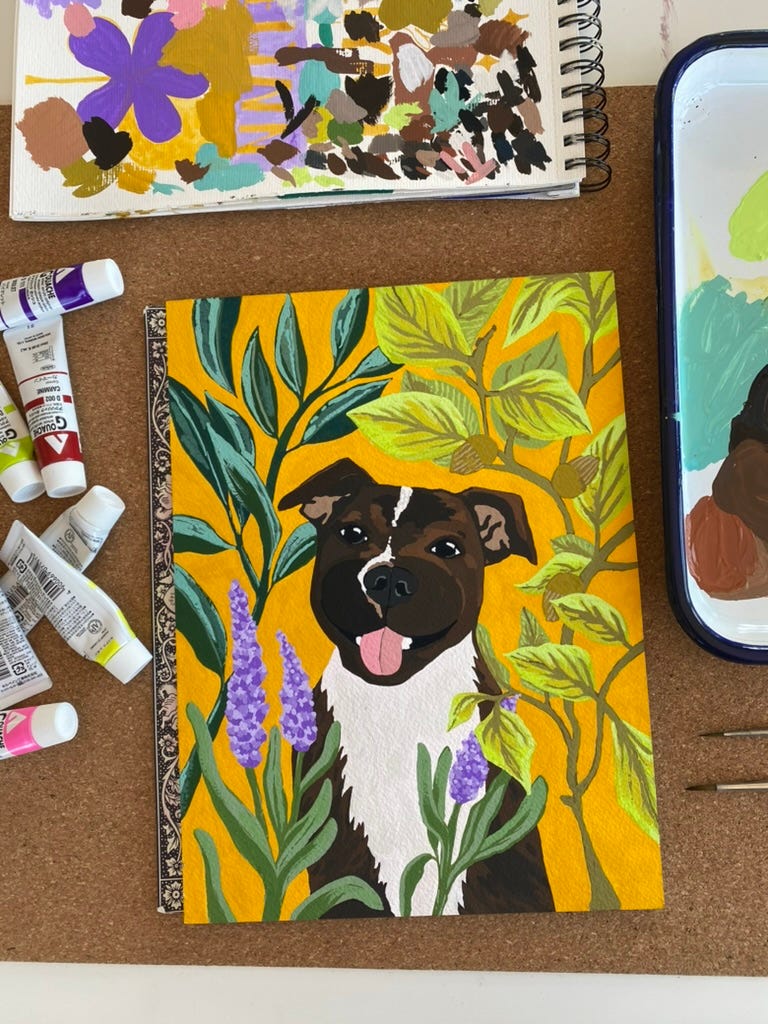How painting pet portraits helps me find motivation 🐶
And cultivating a growth mindset for illustrators

Developing a healthy and inspired mindset forms a cornerstone for nurturing inspiration within one's creative journey. Your mindset is a set of beliefs, attitudes, and assumptions that shape how you perceive and respond to various situations.
One way to cultivate inspiration is to create and maintain daily routines that support and enhance your creative process. This also includes your mindset when starting new projects, which determines how you might handle setbacks, pursue goals, and achieve success.
Carol Dweck, a respected figure in Stanford Psychology, underscores the significance of a growth mindset by emphasizing the belief that creative skills and capabilities are not fixed entities. According to Dweck, individuals with a growth mindset understand that one's true potential remains uncertain and unreachable, highlighting the impossibility of predicting the outcomes achievable through dedication, perseverance, and learning over time.1 Embracing such a mindset fosters a continuous pursuit of growth and improvement, enabling individuals to confront challenges, learn from failures, and create an environment conducive to the emergence of inspiration.
I have recently sought to cultivate this growth mindset through my gouache paintings. Despite my love for painting with gouache, there is always something new to learn. So, in an effort to experiment with gouache pet portraits to improve my skills, I decided to focus on painting dogs by offering a pet portrait service.
I've been watching numerous YouTube videos on color mixing to enhance my skills. Even with small wins, I recognize there's still much to master. My motivation to learn is driven by focusing on the process rather than the outcome, embracing the uncertainty of my potential in this medium. Drawing pet portraits helps me with this because it motivates me to practice my process with gouache paints.

Motivation is intricately linked with mindset, acting as a practical outcome and a catalyst for inspiration. As Hart explains, motivation can respond to inspiration, but inspiration goes beyond mere action, involving a profound sense of knowing and being.2 Hart discusses the role of setting, set, and mystery in inspiring moments. "Setting" refers to external influences, while "set" relates to internal factors like mindset. Individual meaning structures and experiences shape one's openness to inspiration, making some events more significant to some individuals. Hart emphasizes the interplay between mindset and environment, stating that “our mindset affects our receptivity to our surroundings.” 3
So, how can we adopt this growth mindset? Start by acknowledging that progress is a journey, not a destination. Remind yourself: "I can improve my drawing skills by practicing consistently." While staying motivated in today's fast-paced world may be challenging, and comparison on social media can be discouraging, focus on your personal growth rather than external benchmarks.
By tracking my progress through pet portraits and keeping an organized file of all my work, I have started to see myself developing a growth mindset. This system allows me to see my improvements, reinforcing my belief in my ability to grow and improve over time.

An inspired mindset means understanding that some days will be better than others. For example, I feel a sense of accomplishment only when I look at my progress over the last four years. I don't feel this way daily.
So embrace this variability by being kind to yourself and adjusting your perspective as needed. By consistently curating and nurturing your mindset, you can enhance your receptivity to inspiration and maintain your progress over time ✨
KELLEY, Tom and David KELLEY. 2013. Creative Confidence: Unleashing the Creative Potential Within Us All. Crown Currency
HART, Tobin. 1998. Inspiration: Exploring the Experience and Its Meaning. Journal of Humanistic Psychology 38(8), 20-21.
HART, Tobin. 1998. Inspiration: Exploring the Experience and Its Meaning. Journal of Humanistic Psychology 38(8), 27.





